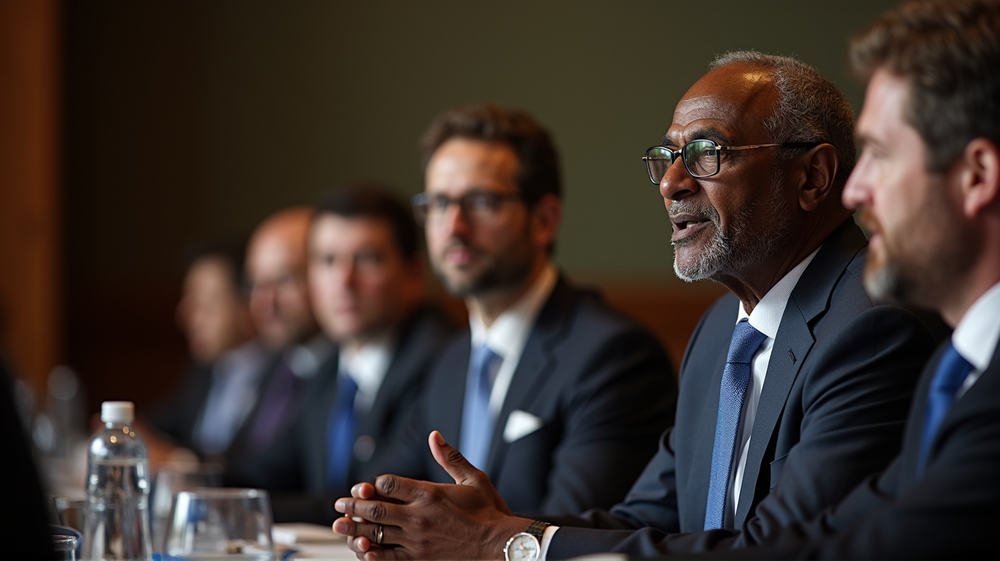Amidst our fast-paced, ever-shifting economic landscape, the voice of caution rises: Dr. Mahamudu Bawumia, former Vice President of Ghana, has sounded an alarm at the International Democracy Union Forum in Brussels. With a wealth of experience at his disposal, Dr. Bawumia urged global policymakers to delve deep into the annals of history and economics, predominantly focusing on the unbridled consequences of mishandling trade imbalances.
A Lesson from History
“When history speaks, it whispers truth to those willing to listen,” Dr. Bawumia asserted, referencing the Smoot-Hawley Tariff Act of the 1930s, a haunting reminder of how unbridled tariffs once plunged the world into economic despair. The lessons from these draconian policies are overshadowed by contemporary strategies that risk repeating the past.
The Reality of Trade Deficits
Dr. Bawumia’s insightful approach dismantled the illusion that trade deficits are mere byproducts of trade policy failures. He emphasized that these deficits are deeply entrenched in a country’s macroeconomic structure, suggesting that simple tariffs or trade barriers can hardly remedy issues rooted in the disparity between national savings and investments.
Trade and Africa’s Stature
Peering through a prism of stark numbers, Dr. Bawumia painted a vivid picture: Africa, standing at only 2.5% of global exports, lags significantly behind Asia and Europe. These statistics are a clarion call for introspection—can Africa rise above these shadows?
Echoes of Trade Wars
The lessons of the recent U.S.–China trade war still reverberate, sowing disruption and imbalance. Dr. Bawumia highlighted how nations, like Lesotho, could find themselves precariously poised if over-reliance on singular export avenues like the African Growth and Opportunity Act remains unchecked.
Navigating the Future
He warned, “When half your export funnel is vulnerable, the reverberations are far-reaching.” Dr. Bawumia’s counsel is not just a reiteration but a roadmap for policymakers to tread wisely in an interconnected economic ecosystem.
According to MyJoyOnline, Dr. Bawumia’s insights shine a light on the intricate ballet of trade and economy, urging a cautious yet enlightened approach to contemporary policy-making. As policymakers, it’s imperative to not just recall history but embrace its truths, crafting policies that are as enduring as they are effective.












